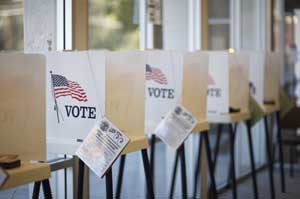
For all the talk of blue and red states, what is truly shaping the 2014 elections is the contrast between people who vote every two years and those who vote every four. Unfortunately for Democrats, many of their voters are in the latter group, making non-presidential years a tough slog. This year is no different, particularly in legislative races, with Republicans across the country in the game or slightly ahead in elections they would almost certainly lose if all the 2012 voters cast ballots.
San Diego
Nowhere is the occasional voter dynamic more obvious than the California 52nd Congressional District. While a near even partisan split will keep this district competitive until the next census, Democrat Scott Peters beat former incumbent Rep. Brian Bilbray by a decisive, if not comfortable, margin in 2012. Now the incumbent, Peters faces a stiff challenge from former Councilmember Carl DeMaio. Despite a series of campaign controversies, DeMaio has continued to hold a within-the-margin lead in polls, though none since his former deputy campaign manager contradicted his version of some events. The race is one of the few congressional races in the country that is a true toss-up, and the safest prediction is that we won’t have a clear winner on Election Night. I’ll go one further and guess that DeMaio’s negatives and a scandal weary electorate will eventually hand the seat to Peters. Should DeMaio win, he can start preparing for an uphill battle against Peters or another Democrat in a less conservative 2016 electorate.
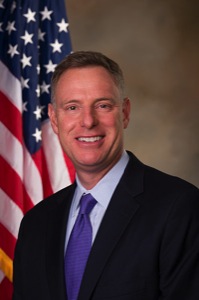
The incumbents are prohibitive favorites in other local U.S. and California legislative races, and three of the four City Council seats were decided in the June primary, leaving Council District 6 as the only other competitive contest. While the race pits Republican Chris Cate against Democrat Carol Kim (remember that I ditched the non-partisan race charade some columns ago), the real issue is whether Democrats will maintain their veto proof majority on City Council. Like the 52nd, District 6 doesn’t have a heavy partisan lean, but the fact that it is only up every four years means the turnout will always tilt Republican. Cate won the primary with 47 percent, and it looks increasingly like he will get the extra 4 percent he needs to win the general and let Mayor Faulconer’s vetoes stick. If the Democratic “Get Out the Vote (GOTV)” effort is good enough to put Kim over the top, Peters should win handily.

California

Democrats are heavily favored in the races for governor (Brown), lt. governor (Newsom), controller (Yee), treasurer (Chiang), attorney general (Harris), and insurance commissioner (Jones). The most competitive race is for superintendent of public instruction, but it features two Democrats, Tom Torlakson and Marshall Tuck. Republicans’ best hope of grabbing a state wide office appears to be with Pete Peterson as secretary of state, but Democrat Alex Padilla remains the favorite.
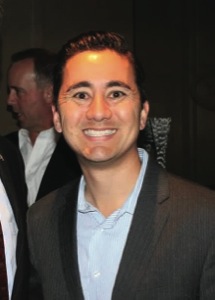
If there is any real action at the state level, it is more likely to be related to the ballot propositions, as evidenced by the fact that Gov. Brown is campaigning for them, not himself. That still may not be much excitement, as the money and/or parties have largely lined up on one side of the issues. In addition to Gov. Brown, support from both Republicans and Democrats make Propositions 1 and 2 likely to pass. The parties are split on Prop. 45, but the insurance companies have spent millions to defeat it. Neither party supports Prop. 46, and the “No on 46” team, including much of the healthcare establishment, has dwarfed any spending in favor. Field polls showed both 45 and 46 losing support and likely to fail.
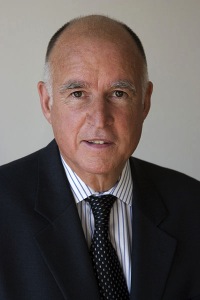
National
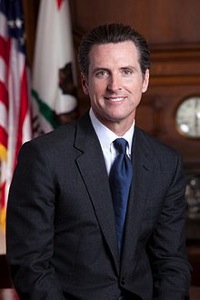
Partisan stalwarts like House Minority Leader Nancy Pelosi and National Committee Chair Debbie Wasserman Schultz are obligated to tell us the House of Representatives is in play for Democrats, but it isn’t. The real action is in the Senate, where the Republicans have a chance to take control for the third consecutive election. In 2010, Democrats were saved by inexperienced and odd Republican candidates and a ten seat cushion. In 2012, they were saved by Republican uttered phrases like “legitimate rape” and President Obama’s GOTV effort.
In 2014, Republican candidates have avoided major faux pas, and President Obama is a political albatross. Most handicappers give the Republicans a 60 percent or better chance of winning the six seats they need to take control of the Senate, but it’s far from clear which seats they will be. The list of “toss-up” races has been bizarrely inconsistent in the closing weeks, with the most recent polls giving Democrats new hope in Alaska, which seemed gone for weeks, but showing a tighter race in North Carolina, which appeared to be a narrow but safe victory. The latest polling makes me think the Democrats will actually hold the Senate, but that could change with tomorrow’s numbers.

Brighter for Democrats are the gubernatorial elections, where Republicans elected in the sweep of 2010 are in as much jeopardy as the Democratic senators who rode President Obama’s coat tails in 2008. Democrats are heavily favored to oust Republican Tom Corbett, a major coup given that an incumbent hasn’t lost re-election in Pennsylvania in decades. They also have opportunities in traditional battlegrounds like Wisconsin and Michigan, where conservative governors have polarized electorates, and in Kansas, where Gov. Brownback’s policies were too conservative for moderate Republicans who are backing his Democratic challenger. Though Democrats could lose seats in Colorado and Illinois, where candidate and state issues have turned against them, they will probably add to their state house totals this year.
In the end, most of the tight races will depend on Democratic GOTV efforts. Turning out a mid-term electorate that approximates a presidential one has long been the Holy Grail of Democratic politics. With a huge investment in targeted states, knowledge of social media and the remnants of President Obama’s Voter Identification operation, Democrats believe this is the year it will all come together. If it does, Republicans should be very scared about 2016. If it doesn’t come together, Republicans should still be worried, as they will be defending Senate seats won in their high water year of 2010 with a less friendly electorate.











